
Akihabara: Tokyo's Electric Town and Otaku Paradise
Welcome to Akihabara, a vibrant neighborhood in Tokyo famous for its bustling electronics markets and rich otaku culture. Known to locals as 'Akiba,' this area is a must-visit for tech enthusiasts, anime fans, and anyone looking to experience a unique slice of Japanese pop culture. Originally a center for electronics shops, Akihabara has evolved into a mecca for anime, manga, and video game lovers. Walk through the neon-lit streets and you'll find an array of stores selling everything from the latest gadgets to rare collectibles. Iconic spots like Yodobashi Camera and Akihabara Radio Kaikan are just the beginning; the area is also home to numerous specialty shops where you can find hard-to-get items and exclusive merchandise. But Akihabara is not just about shopping. It's also a cultural hub where you can immerse yourself in Japan's unique subcultures. Maid cafes, where waitresses dress in elaborate costumes and treat you like royalty, offer a whimsical dining experience you won't find anywhere else. For a more interactive adventure, visit one of the many arcades or VR gaming centers scattered throughout the neighborhood. Whether you're a casual visitor or a die-hard fan, Akihabara offers endless entertainment and discoveries.
Local tips in Akihabara
- Visit on a Sunday when the main street, Chuo Dori, is closed to traffic and becomes a pedestrian paradise.
- Don't miss the Gundam Café, themed around the iconic mecha anime series.
- Bring cash, as many smaller shops do not accept credit cards.
- Check out the second-hand stores for rare and vintage finds at a fraction of the cost.
- Take some time to explore the lesser-known side streets for hidden gems.
Akihabara: Tokyo's Electric Town and Otaku Paradise
Welcome to Akihabara, a vibrant neighborhood in Tokyo famous for its bustling electronics markets and rich otaku culture. Known to locals as 'Akiba,' this area is a must-visit for tech enthusiasts, anime fans, and anyone looking to experience a unique slice of Japanese pop culture. Originally a center for electronics shops, Akihabara has evolved into a mecca for anime, manga, and video game lovers. Walk through the neon-lit streets and you'll find an array of stores selling everything from the latest gadgets to rare collectibles. Iconic spots like Yodobashi Camera and Akihabara Radio Kaikan are just the beginning; the area is also home to numerous specialty shops where you can find hard-to-get items and exclusive merchandise. But Akihabara is not just about shopping. It's also a cultural hub where you can immerse yourself in Japan's unique subcultures. Maid cafes, where waitresses dress in elaborate costumes and treat you like royalty, offer a whimsical dining experience you won't find anywhere else. For a more interactive adventure, visit one of the many arcades or VR gaming centers scattered throughout the neighborhood. Whether you're a casual visitor or a die-hard fan, Akihabara offers endless entertainment and discoveries.
Iconic landmarks you can’t miss
Akihabara Radio Kaikan
Explore Akihabara Radio Kaikan, the ultimate shopping destination in Tokyo for tech, anime, and pop culture enthusiasts.
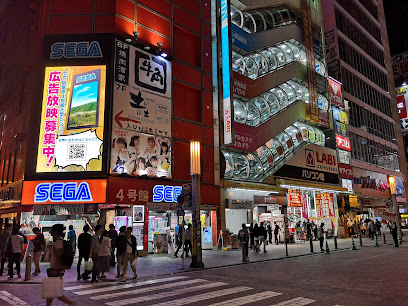
Akihabara UDX
Experience the fusion of technology and pop culture at Akihabara UDX, Tokyo's vibrant hub for innovation and entertainment.
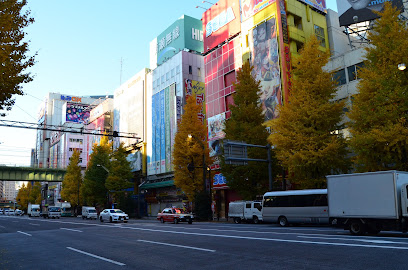
GiGO Akihabara Building 3
Discover unparalleled gaming excitement at GiGO Akihabara Building 3, Tokyo's premier video arcade destination, where fun knows no bounds.
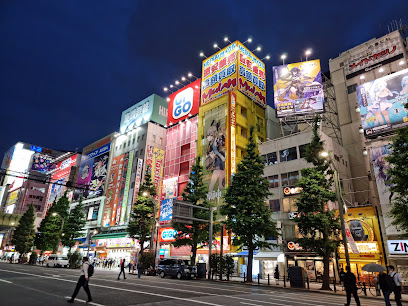
Akihabara Electric Town
Explore the vibrant Akihabara Electric Town, where technology and pop culture collide in the heart of Tokyo.
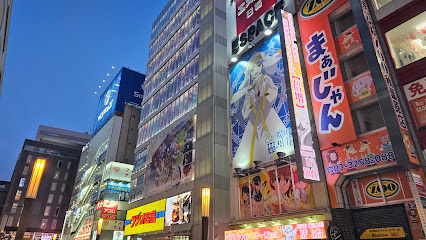
GiGO Akihabara 1
Discover GiGO Akihabara 1, the ultimate video arcade in Tokyo, featuring a vast selection of games and immersive experiences for all ages.
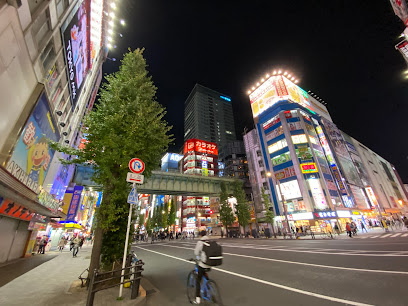
Akiba Cultures Zone
Immerse yourself in the lively atmosphere of Akiba Cultures Zone, where anime, manga, and gaming come to life in Tokyo's vibrant Akihabara district.
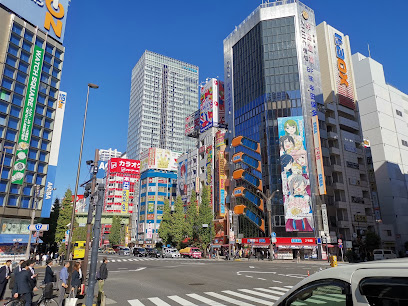
Akihabara Gachapon Hall
Discover the whimsical world of capsule toys at Akihabara Gachapon Hall in Tokyo, a must-visit destination for collectors and tourists alike.
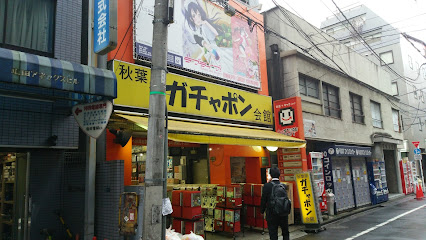
Akihabara Park
Explore the serene beauty of Akihabara Park, a tranquil oasis in the heart of Tokyo's bustling Akihabara district, perfect for relaxation and cultural immersion.
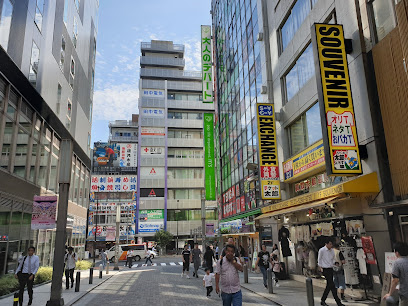
AKIBA_INFO.
Explore Akihabara's vibrant culture and unique attractions at AKIBA_INFO, your comprehensive tourist information center in Tokyo.
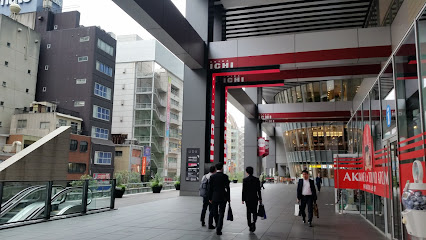
Unmissable attractions to see
Ueno Zoological Gardens
Discover the captivating wildlife and lush landscapes of Ueno Zoological Gardens, Tokyo's premier zoo and a top tourist attraction.
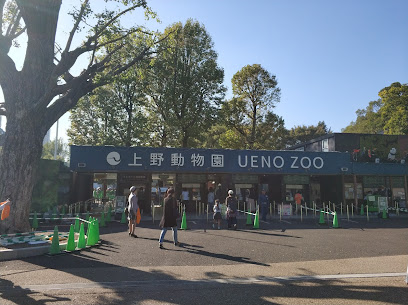
Tokyo National Museum
Discover Japanese art and history at the Tokyo National Museum, home to an extensive collection of national treasures and cultural properties.
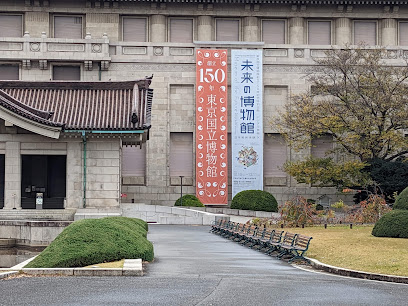
National Museum of Nature and Science
Explore over 25,000 exhibits of natural history and science at Tokyo's National Museum of Nature and Science in Ueno Park.
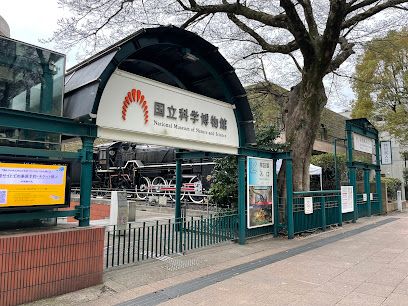
Kanda myojin Shrine
A historic Tokyo shrine blending ancient traditions with modern Akihabara culture, offering blessings for business, marriage, and technology.
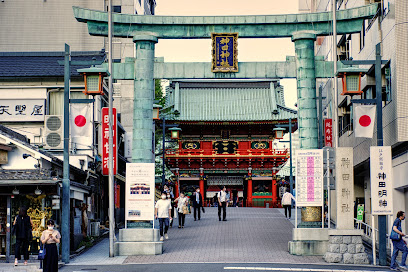
Don Quijote Akihabara
Explore the unique and diverse offerings at Don Quijote Akihabara, a discount store that captures the essence of Japanese culture and shopping.
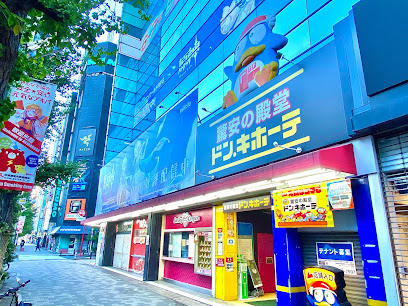
The National Museum of Modern Art Tokyo
Explore Japan's rich artistic heritage at The National Museum of Modern Art Tokyo, a captivating destination for art lovers and cultural enthusiasts.
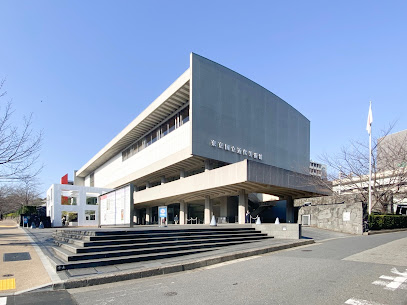
Ueno Ameyoko Shopping District
Explore Tokyo's vibrant Ameyoko market: a historic hub with diverse goods, street food, and bargain deals near Ueno Station.
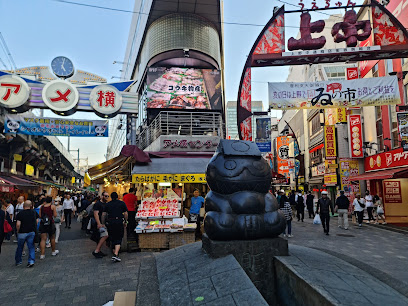
Former Iwasaki House Garden
Explore a Meiji-era mansion and gardens blending Western and Japanese styles, once home to the Iwasaki family, founders of Mitsubishi, in Tokyo.

Akihabara Electric Town
Discover the vibrant heart of Tokyo at Akihabara Electric Town, where technology and pop culture collide in an electric atmosphere.
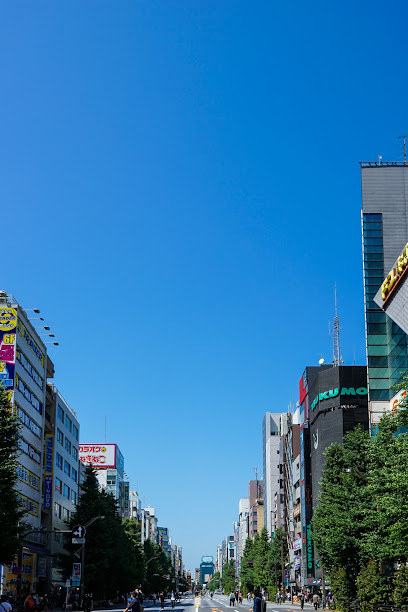
Akiba Cultures Zone
Explore Akihabara's vibrant pop culture at Akiba Cultures Zone, a multi-level complex dedicated to anime, manga, gaming, and idol culture.
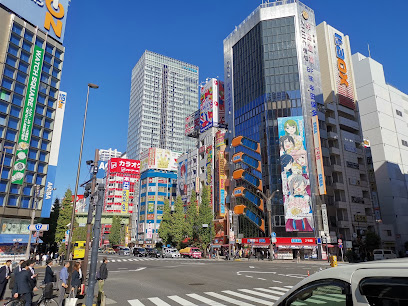
Yushima Seido
Discover Yushima Seido, Tokyo's serene Confucian temple, a historic landmark with stunning architecture and a rich educational legacy.
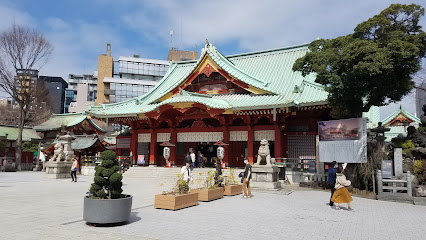
Horin Park
A peaceful park in Akihabara, offering a green escape with playgrounds and tranquil spaces for relaxation and community.
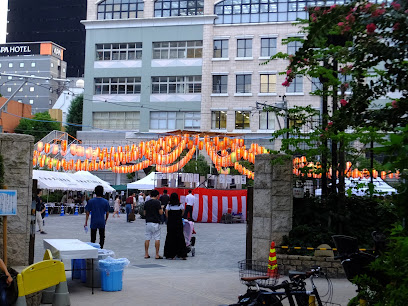
Yanagimori Shrine
Discover a serene Shinto shrine near Akihabara, with a rich history and charming tanuki statues, offering a peaceful escape in bustling Tokyo.
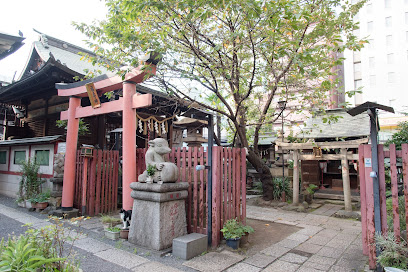
Meiji University Museum
Explore Japanese history and culture through archaeology, crafts, and criminal history at this free museum in Meiji University, Tokyo.
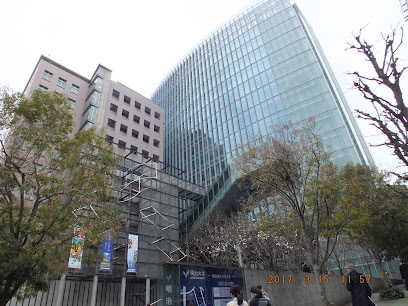
Akihabara Park
Find serenity in Tokyo's Electric Town at Akihabara Park, a peaceful green space offering a relaxing escape from the city's buzz.
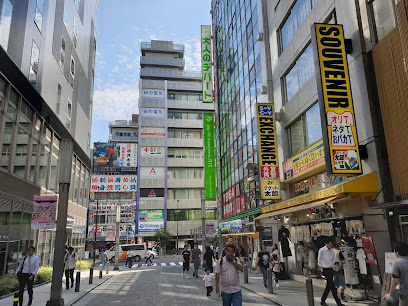
Essential places to dine
Maidreamin Akihabara Main Store
Discover Maidreamin Akihabara: A Cosplay Cafe Where Fantasy Comes Alive with Delightful Treats and Interactive Fun!
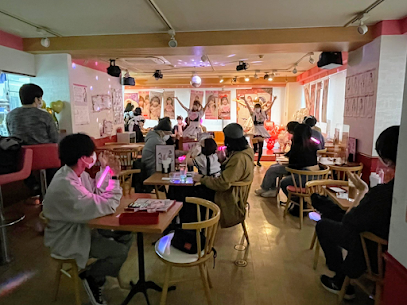
Roast Beef Ōno Akihabara
Indulge in exquisite roast beef at Roast Beef Ōno, where traditional Japanese flavors meet modern culinary artistry in Akihabara.
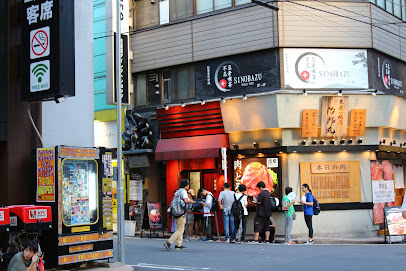
Meat Winery Akihabara
Experience exquisite steaks and fine wines at Meat Winery Akihabara - a culinary gem in Tokyo's vibrant district.
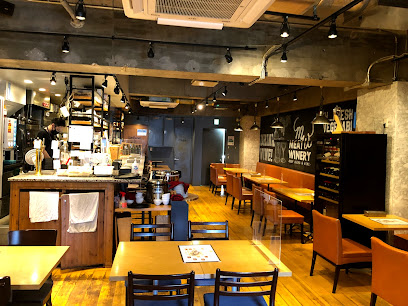
Akiba Ichi
Explore Akiba Ichi in Akihabara: A vibrant food court offering diverse cuisines from traditional Japanese dishes to international flavors.
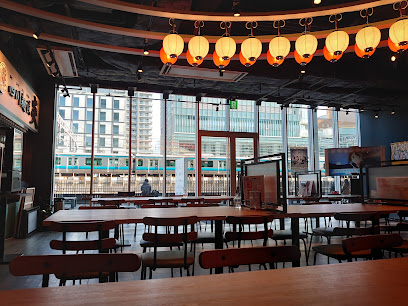
Jiromaru Akihabara
Experience authentic Yakiniku at Jiromaru Akihabara – where premium A5 beef meets an unforgettable dining atmosphere.
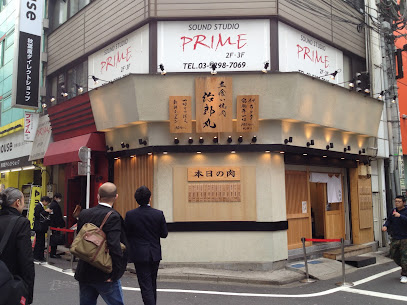
Sultan Akihabara
Discover the exquisite blend of Indian flavors and Japanese curry at Sultan Akihabara – a must-visit culinary destination in Tokyo.
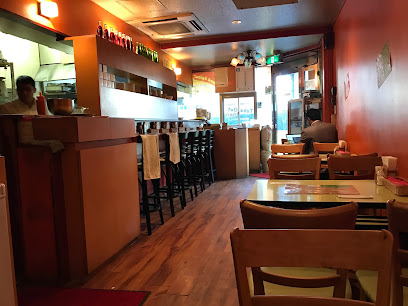
Pepper Lunch
Discover sizzling steak dishes at Pepper Lunch, a must-visit lunch spot in Tokyo's Chiyoda City, perfect for meat lovers seeking flavor.
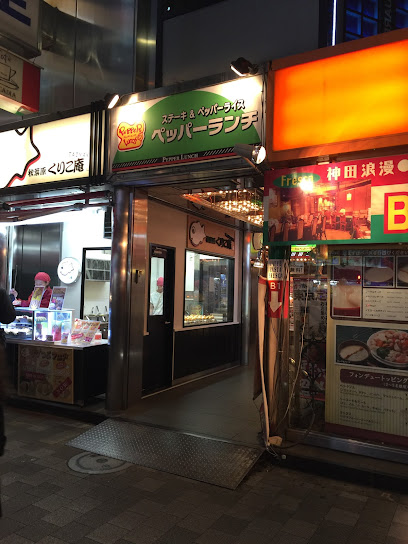
The Beef Master Akihabara Store
Experience authentic yakiniku at The Beef Master Akihabara Store - where quality meets tradition in the heart of Tokyo.
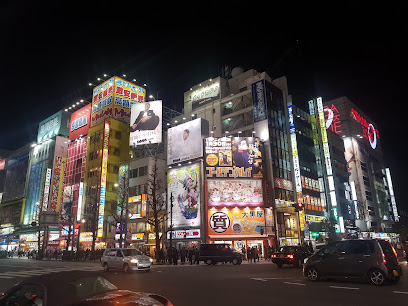
ビストロ TERIYAKI 秋葉原店
Experience authentic Italian flavors at Bistro TERIYAKI in Akihabara – where tradition meets innovation in every bite.
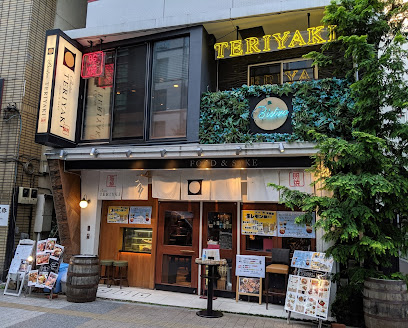
Labs syokudo
Experience innovative Japanese cuisine at Labs Syokudo in Akihabara—where traditional flavors meet modern creativity.
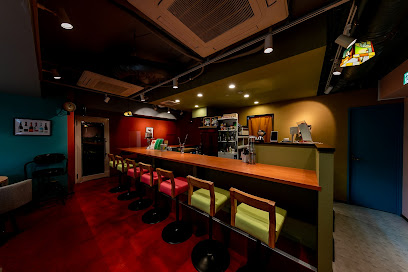
Markets, malls and hidden boutiques
Don Quijote Akihabara
Explore the eclectic offerings of Don Quijote Akihabara, Tokyo's ultimate discount store for unique finds and unforgettable shopping experiences.
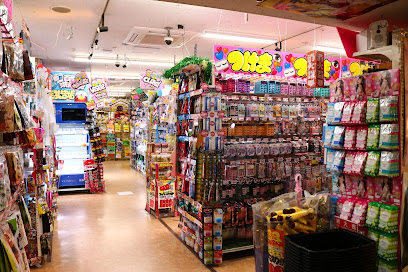
AKIHABARA KOTOBUKIYA
Discover a world of collectibles and anime magic at AKIHABARA KOTOBUKIYA, Tokyo's premier toy store for enthusiasts and tourists alike.
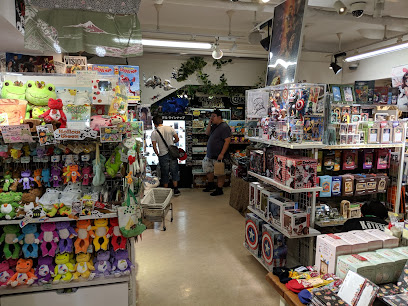
K-BOOKS Akihabara
Explore K-BOOKS Akihabara, the ultimate destination for anime and manga enthusiasts seeking collectibles and rare finds in Tokyo.
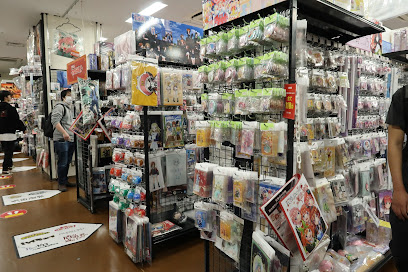
amiami Akihabara Radio Kaikan
Explore a treasure trove of anime and gaming collectibles at AmiAmi Akihabara Radio Kaikan, the ultimate hobbyist's paradise in Tokyo.
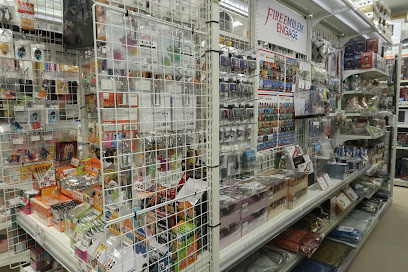
gee store!!
Discover the ultimate hobby store in Tokyo, where passion for collectibles and pop culture comes to life in a vibrant shopping experience.
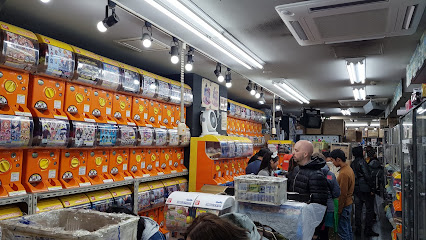
Suruga-ya Akihabara Shop Anime Hobby Pavilion
Explore a vast selection of anime, manga, and gaming treasures at Suruga-ya Akihabara, the ultimate destination for pop culture enthusiasts in Tokyo.
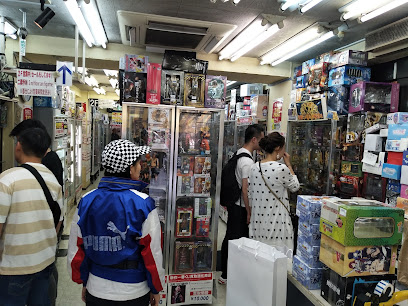
JUNGLE Akihabara 1
Explore JUNGLE Akihabara, Tokyo's premier hobby store for anime, manga, and gaming enthusiasts, brimming with collectibles and unique treasures.
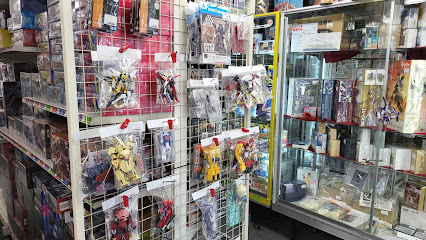
Laox
Explore Laox in Akihabara for an unforgettable duty-free shopping experience featuring beauty, electronics, and authentic Japanese souvenirs.

Azone Akihabara
Explore Azone Akihabara, Tokyo's premier hobby store, featuring exquisite dolls and collectibles that reflect the essence of Japanese culture.
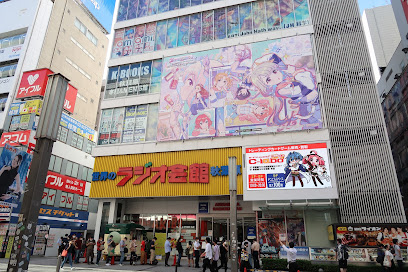
Akihabara
Explore Akihabara, Tokyo's Electric Town, where vibrant electronics, anime, and maid cafés create an unforgettable cultural experience.
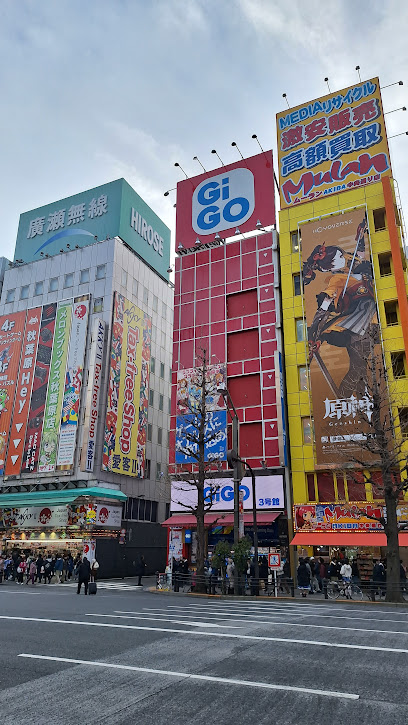
Essential bars & hidden hideouts
HUB Akihabara
Experience the heart of Akihabara at HUB Akihabara, where great food, drinks, and lively atmosphere come together for an unforgettable night out.
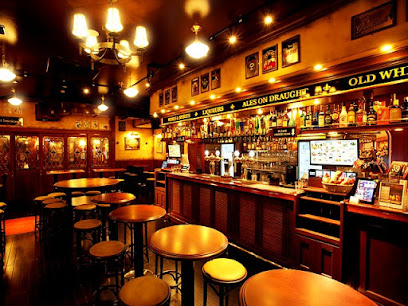
THE R.C. ARMS Akihabara
Experience the charm of a British gastropub in Tokyo's Akihabara, where traditional cuisine meets a modern twist in a cozy atmosphere.
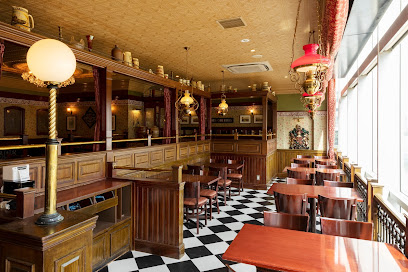
HUB Chomp Chomp Akihabara
Experience a taste of British pub culture in the heart of Tokyo's Akihabara at HUB Chomp Chomp, serving delicious fish and chips and a lively atmosphere.
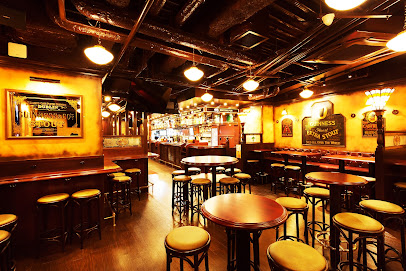
Bar Rhythm Akihabara Denkigai
Discover the vibrant sports bar experience at Bar Rhythm Akihabara Denkigai, where darts and drinks create unforgettable memories in Tokyo's Akihabara.
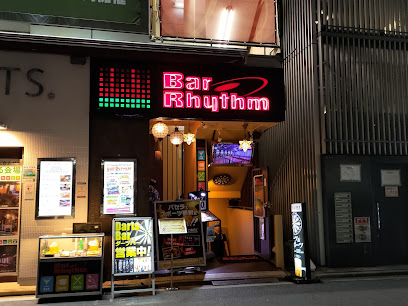
82 Akiba Tolim
Discover the essence of Tokyo nightlife at 82 Akiba Tolim, where delicious fish & chips and an extensive drink menu await.
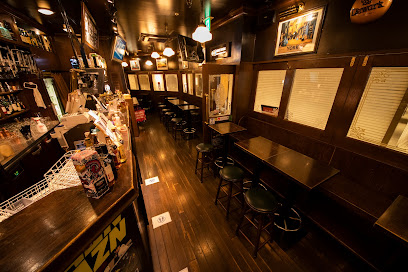
Akihabara Dear Stage
Dive into the heart of Tokyo's pop culture at Akihabara Dear Stage, a vibrant bar and event venue offering unique drinks and immersive entertainment.
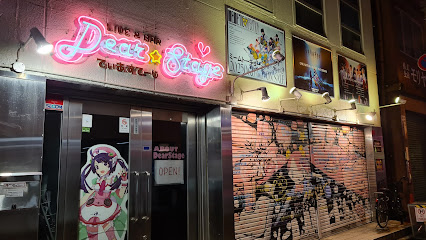
Game Bar A-Button
Discover the ultimate gaming experience in Tokyo at Game Bar A-Button, where nostalgia meets fun in a cozy setting.
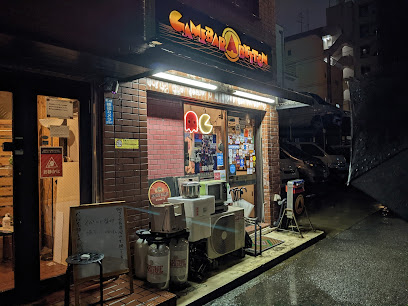
Alchemist
Discover the artistry of cocktails at Alchemist Bar, Tokyo's enchanting destination for nightlife and unique drink experiences.
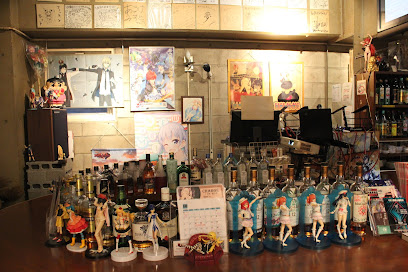
Low-Non-Bar
Experience the essence of Tokyo's cocktail culture at Low-Non-Bar, a cozy sanctuary in Kanda Sudacho where every drink tells a story.

cafe&bar WANTED
Uncover the magical world of Cafe&Bar WANTED in Chiyoda City, where enchanting themes meet delightful drinks in the heart of Tokyo's nightlife.
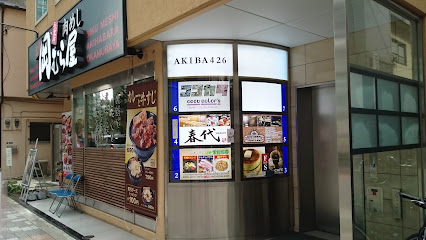
Local Phrases
-
- Helloこんにちは
[konnichiwa] - Goodbyeさようなら
[sayonara] - Yesはい
[hai] - Noいいえ
[iie] - Please/You're welcomeどうぞ
[douzo] - Thank youありがとう
[arigatou] - Excuse me/Sorryすみません
[sumimasen] - How are you?お元気ですか?
[ogenki desu ka?] - Fine. And you?元気です。あなたは?
[genki desu. anata wa?] - Do you speak English?英語を話せますか?
[eigo o hanasemasu ka?] - I don't understandわかりません
[wakarimasen]
- Helloこんにちは
-
- I'd like to see the menu, pleaseメニューを見せてください
[menyuu o misete kudasai] - I don't eat meat肉は食べません
[niku wa tabemasen] - Cheers!乾杯!
[kanpai!] - I would like to pay, pleaseお会計をお願いします
[okaikei o onegaishimasu]
- I'd like to see the menu, pleaseメニューを見せてください
-
- Help!助けて!
[tasukete!] - Go away!行ってください!
[itte kudasai!] - Call the Police!警察を呼んで!
[keisatsu o yonde!] - Call a doctor!医者を呼んで!
[isha o yonde!] - I'm lost道に迷っています
[michi ni mayotteimasu] - I'm ill具合が悪いです
[guai ga warui desu]
- Help!助けて!
-
- I'd like to buy...買いたいです...
[kaitai desu...] - I'm just looking見てるだけです
[miteru dake desu] - How much is it?いくらですか?
[ikura desu ka?] - That's too expensiveそれは高すぎます
[sore wa takasugimasu] - Can you lower the price?値段を下げてもらえますか?
[nedan o sagete moraemasu ka?]
- I'd like to buy...買いたいです...
-
- What time is it?今何時ですか?
[ima nanji desu ka?] - It's one o'clock1時です
[ichiji desu] - Half past (10)10時半
[juuji han] - Morning朝
[asa] - Afternoon午後
[gogo] - Evening夕方
[yugata] - Yesterday昨日
[kinou] - Today今日
[kyou] - Tomorrow明日
[ashita] - 1一
[ichi] - 2二
[ni] - 3三
[san] - 4四
[shi] - 5五
[go] - 6六
[roku] - 7七
[nana] - 8八
[hachi] - 9九
[kyuu] - 10十
[juu]
- What time is it?今何時ですか?
-
- Where's a/the...?....はどこですか?
[....wa doko desu ka?] - What's the address?住所は何ですか?
[juusho wa nan desu ka?] - Can you show me (on the map)?地図で見せてもらえますか?
[chizu de misete moraemasu ka?] - When's the next (bus)?次の(バス)はいつですか?
[tsugi no (basu) wa itsu desu ka?] - A ticket (to ....)(....)へのチケット
[(....) e no chiketto]
- Where's a/the...?....はどこですか?
History of Akihabara
-
Akihabara's history can be traced back to the Edo period (1603-1868) when it was a small village known as 'Kanda-Sakumachi.' The area was primarily agricultural, and its proximity to the Kanda River made it a vital transportation route. In 1869, the establishment of a railway station marked the beginning of Akihabara's transformation into a commercial hub.
-
After World War II, Akihabara emerged as a center for the black market trade of electronics. The 1950s saw a surge in demand for radios and other consumer electronics, leading to the establishment of numerous shops and stalls. By the 1960s, Akihabara had firmly established itself as 'Electric Town' (Denki-gai), attracting technology enthusiasts and consumers alike.
-
The 1980s and 1990s marked a significant cultural shift in Akihabara, as it became the epicenter of otaku culture. The rise of anime, manga, and video games led to the proliferation of specialty shops and arcades. Iconic stores such as Mandarake and Animate catered to the growing demand for anime-related merchandise, solidifying Akihabara's status as a global hub for otaku culture.
-
In the early 2000s, Akihabara saw the emergence of maid cafés, where waitresses dressed in maid costumes serve food and drinks to customers. This unique cultural phenomenon attracted both locals and tourists, further enhancing Akihabara's reputation as a place for entertainment and fandom. Today, the area boasts a vibrant mix of shops, cafés, and themed experiences, continuing to evolve and capture the imagination of visitors.
-
In recent years, Akihabara has embraced its historical roots while also adapting to modern trends. The area remains a bustling center for technology, gaming, and pop culture, hosting events such as anime conventions and technology expos. Akihabara's blend of traditional Japanese culture and contemporary subcultures makes it a unique destination within the broader context of Tokyo's dynamic landscape.
Akihabara Essentials
-
Akihabara is easily accessible from various neighborhoods in Tokyo. The main station serving Akihabara is Akihabara Station, which is on the JR Yamanote Line, making it convenient to reach from popular areas like Shibuya, Shinjuku, and Ueno. Additionally, the Tokyo Metro Hibiya Line also connects to Akihabara. From Narita International Airport, take the Narita Express to Tokyo Station and transfer to the Yamanote Line. From Haneda Airport, the Tokyo Monorail connects to Hamamatsucho Station, where you can transfer to the Yamanote Line.
-
Akihabara is compact and walkable, making it easy to explore on foot. The area is also well-served by public transport, including the JR and Tokyo Metro lines. Bicycles can be rented at various shops, and there are designated bike lanes. Taxis are available but can be more expensive. Note that some attractions may have limited access for people with mobility challenges, so plan accordingly.
-
Akihabara is generally considered safe for tourists, with low crime rates. However, it is wise to remain cautious in crowded areas, especially during weekends and festivals. Petty crimes such as pickpocketing can occur, particularly in busy shopping areas. Be vigilant around the Akihabara Electric Town area, which can attract larger crowds. Avoid alleyways at night that are poorly lit.
-
In case of an emergency, dial 110 for police assistance or 119 for fire and medical emergencies. Akihabara has several hospitals and clinics, including the Tokyo Medical University Hospital. It is advisable to have travel insurance that covers medical emergencies. Pharmacies are also readily available for minor health issues, and staff can often assist in English.
-
Fashion: Do wear comfortable shoes, as you'll be walking a lot. Don’t wear overly casual attire, especially in shops that cater to a more fashionable clientele. Religion: Do respect local customs, especially if visiting nearby shrines or temples. Don’t engage in loud conversations in these areas. Public Transport: Do follow the etiquette of not talking on the phone and giving up your seat to those in need. Don’t eat or drink on trains. Greetings: Do bow slightly when greeting someone, as it is a sign of respect. Don’t expect a handshake as the norm. Eating & Drinking: Do try local specialties, such as ramen and sushi. Don’t tip at restaurants, as it’s not customary.
-
To experience Akihabara like a local, visit the various themed cafes, such as maid cafes or animal cafes, which provide unique entertainment and dining experiences. Explore the hidden shops in the back alleys for rare collectibles and anime merchandise. Engage with local gamers at arcades, which offer a glimpse into Japanese gaming culture. Consider visiting during one of Akihabara’s many festivals or events for a lively atmosphere and local interactions.
Nearby Cities to Akihabara
-
Things To Do in Nagoya
-
Things To Do in Kanazawa
-
Things To Do in Kyoto
-
Things To Do in Nara
-
Things To Do in Osaka
-
Things To Do in Hiroshima
-
Things To Do in Sapporo
-
Things To Do in Fukuoka
-
Things To Do in Pohang
-
Things To Do in Gyeongju
-
Things To Do in Ulsan
-
Things To Do in Busan
-
Things To Do in Andong
-
Things To Do in Daegu
-
Things To Do in Chuncheon












